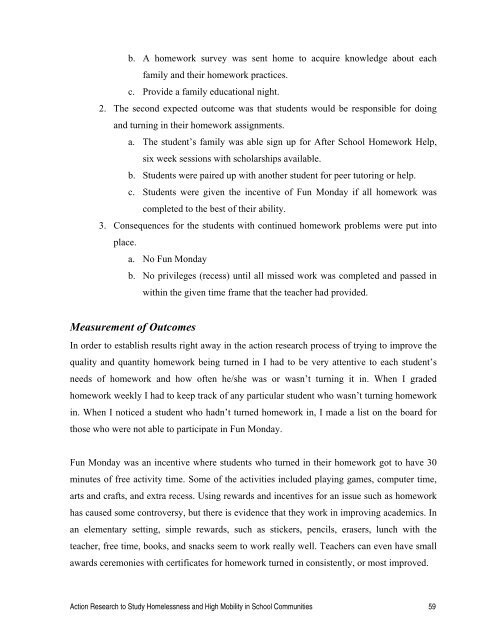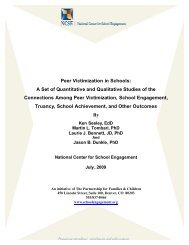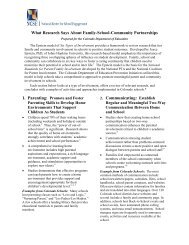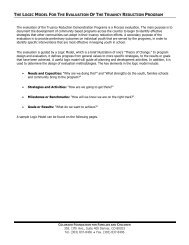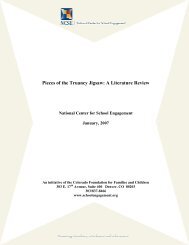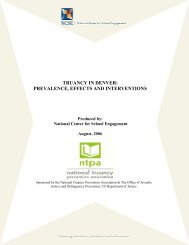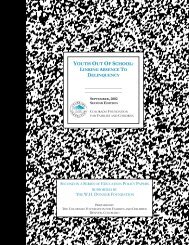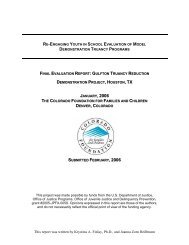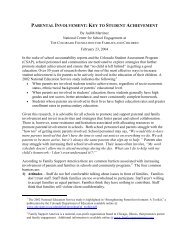Section 1: Academic Achievement - National Center for School ...
Section 1: Academic Achievement - National Center for School ...
Section 1: Academic Achievement - National Center for School ...
Create successful ePaper yourself
Turn your PDF publications into a flip-book with our unique Google optimized e-Paper software.
. A homework survey was sent home to acquire knowledge about each<br />
family and their homework practices.<br />
c. Provide a family educational night.<br />
2. The second expected outcome was that students would be responsible <strong>for</strong> doing<br />
and turning in their homework assignments.<br />
a. The student’s family was able sign up <strong>for</strong> After <strong>School</strong> Homework Help,<br />
six week sessions with scholarships available.<br />
b. Students were paired up with another student <strong>for</strong> peer tutoring or help.<br />
c. Students were given the incentive of Fun Monday if all homework was<br />
completed to the best of their ability.<br />
3. Consequences <strong>for</strong> the students with continued homework problems were put into<br />
place.<br />
a. No Fun Monday<br />
b. No privileges (recess) until all missed work was completed and passed in<br />
within the given time frame that the teacher had provided.<br />
Measurement of Outcomes<br />
In order to establish results right away in the action research process of trying to improve the<br />
quality and quantity homework being turned in I had to be very attentive to each student’s<br />
needs of homework and how often he/she was or wasn’t turning it in. When I graded<br />
homework weekly I had to keep track of any particular student who wasn’t turning homework<br />
in. When I noticed a student who hadn’t turned homework in, I made a list on the board <strong>for</strong><br />
those who were not able to participate in Fun Monday.<br />
Fun Monday was an incentive where students who turned in their homework got to have 30<br />
minutes of free activity time. Some of the activities included playing games, computer time,<br />
arts and crafts, and extra recess. Using rewards and incentives <strong>for</strong> an issue such as homework<br />
has caused some controversy, but there is evidence that they work in improving academics. In<br />
an elementary setting, simple rewards, such as stickers, pencils, erasers, lunch with the<br />
teacher, free time, books, and snacks seem to work really well. Teachers can even have small<br />
awards ceremonies with certificates <strong>for</strong> homework turned in consistently, or most improved.<br />
Action Research to Study Homelessness and High Mobility in <strong>School</strong> Communities 59


